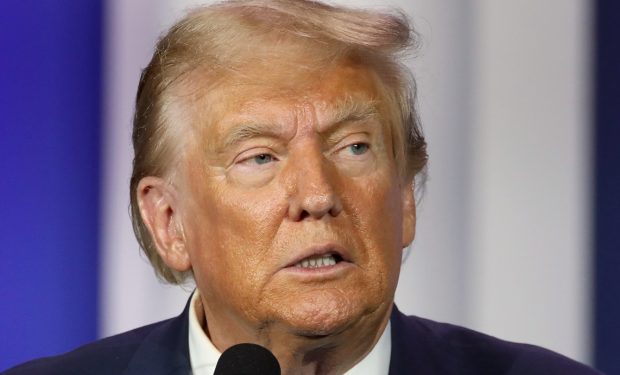American campaign finance law is so Byzantine and complex that even the first-rate intellect of the late SCOTUS Justice Antonin Scalia had trouble comprehending it. So says Brad Smith, a campaign finance scholar and law professor, who was slated to be the top witness for Donald Trump‘s defense in the so-called “hush money” trial in New York City. (Smith was chairman of the Federal Election Commission between 2000 and 2005.)
But the Federal Election Campaign Act is very complex. Even Antonin Scalia—a pretty smart guy, even you hate him—once said “this [campaign finance] law is so intricate that I can’t figure it out. /2
— Brad Smith (@CommishSmith) May 20, 2024
[Trump faces 34 felony counts for allegedly falsifying business documents to cover up payments made to adult film star Stormy Daniels prior to the 2016 presidential election.]
With campaign law inscrutable even to the likes of Scalia, it is likely too hard for jurors to understand, Smith asserts in a multi-tweet thread published on Monday. As a witness for the defense, Smith was poised to essentially instruct the jury about the complicated law during his testimony — a situation Judge Juan Merchan shot down, asserting that the jury can take instructions on the law only from the judge in the case.
(NOTE: The case partly hinges on whether the hush money payment was also a campaign spending violation.)
Judge Merchan has so restricted my testimony that defense has decided not to call me. Now, it’s elementary that the judge instructs the jury on the law, so I understand his reluctance. /1
— Brad Smith (@CommishSmith) May 20, 2024
Smith concedes in the very first of his 11 linked tweets that Merchan is correct about the “elementary” procedural fact that the judge instructs the jury on the law in a trial. And Smith admits he “understands” the judge’s “reluctance” to give Smith an opportunity to essentially augment the judge’s instructions in his testimony.
Smith writes: “Judge Merchan has so restricted my testimony that defense has decided not to call me. Now, it’s elementary that the judge instructs the jury on the law, so I understand his reluctance.”
But Smith contends that Merchan did allow the jury to receive instructions about the law from a source other than the judge — Smith says the jury’s understanding of the law now derives in part from the testimony of the prosecution’s top witness, Michael Cohen, who was, according to Smith, allowed “to go on at length about whether and how his activity violated FECA.”
Merchan, as Smith also acknowledges, “has asked the sides to submit further proposed instructions on FECA” — that’s the federal election law acronym. But Smith, without explaining why, says he is “not optimistic” about this.
/8 judge Merchand has asked the sides to submit further proposed instructions on FECA, and then I assume they’ll argue it out. I’m not optimistic.
— Brad Smith (@CommishSmith) May 20, 2024
Smith’s lack of optimism is not surprising when one reads further into his thread, because Smith has already drawn conclusions about the proceedings that predate the trial itself, saying the prosecution is based on a “far-fetched legal theory” and that, parroting the MAGA line, “you’ve got a judge who contributed to Trump’s opponent presiding over a trial by a prosecutor who was elected on a vow to get Trump.”
Smith also calls the trial a “farce,” which in itself may be a contributing factor in Merchan’s “reluctance” to allow Smith to “instruct” the jury on the law.
Claiming the judge’s “bias is very evident,” Smith asserts, without corroboration, that “pluralities of Americans see Biden as a greater threat to democracy than Trump.” X owner Elon Musk amplified Smith’s claims writing “very concerning thread.”
